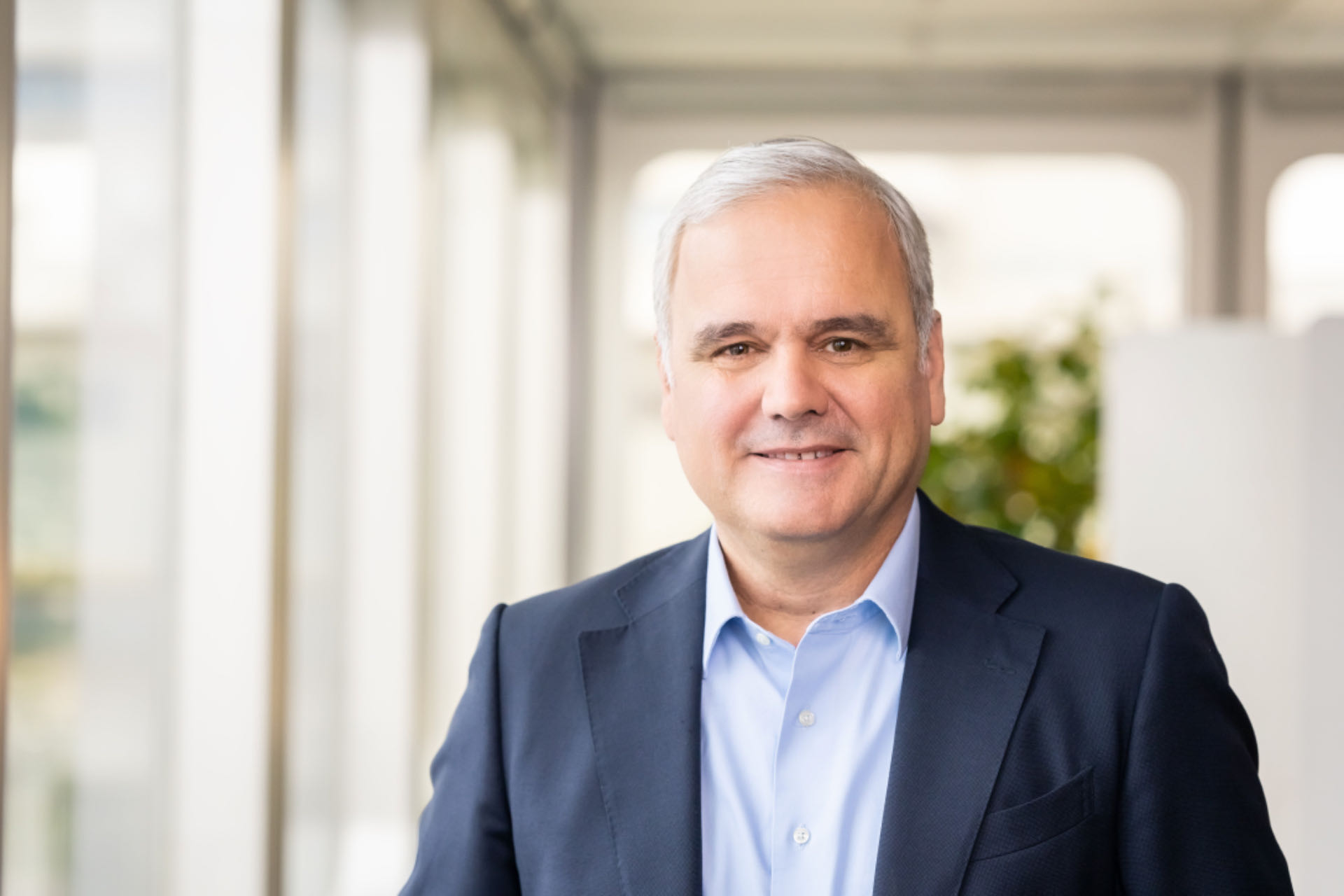 Bayer Pharma to Maintain Focus on Innovation, Growth Despite Last Year's Headwinds
Bayer Pharma to Maintain Focus on Innovation, Growth Despite Last Year's Headwinds(Yicai) March 26 -- The growth strategy of Bayer's pharmaceutical business is clear and will remain unchanged, focusing on renewing its top lines through innovation and propelling organizational efficiency and productivity, according to the head of the German multinational company's pharmaceutical division.
Bayer has been fostering new therapies for cardiovascular diseases, oncology, ophthalmology, women's health, and rare diseases, focusing on emerging innovative technologies, such as cell and gene therapy (CGT) and artificial intelligence, to meet strong needs, Stefan Oelrich, who is also a member of Bayer's management board, said during Pharma Media Day on March 21.

Bayer's sales from the pharmaceutical business remained flat last year from the previous one, mainly due to the loss of exclusive rights, pipeline changes, higher investment in cutting-edge fields, such as CGT and chemoproteomic technologies, and the allocation of more resources to projects in advanced clinical trials.
Bayer submitted eight Investigational New Drug (IND) Applications for the treatment of conditions including congestive heart failure and menopause symptoms last year. "These numbers clearly demonstrate that the replenishment of our pipeline is in full swing, showing blockbuster potential," said Oelrich.
Bayer also joined hands with institutions like universities and small biotechnology companies on the development of drugs in the cardiovascular, oncology, immunology, and other emerging fields, such as CGT for Parkinson's Disease and rare diseases, Oelrich noted. "We contribute to scaling these applications effectively," he added.
"Over the last four years, we've done about 120 or more deals in total," Oelrich pointed out. Bayer will continue to screen for potential partnerships and licensing rights for groundbreaking medicine targets, he said.
A EUR10 Billion Stable Business Plus New Launches
Bayer has a stable base business worth around EUR10 billion (USD10.8 billion) and will complement that by replenishing and advancing products in the early pipeline stage with differentiated and innovative medicines while driving the life cycle management programs of the existing candidates.
For example, sales of Nubeqa, a drug used to treat adults with prostate cancer, almost doubled last year and are expected to reach EUR1 billion this year. Following the approval of Eylea 8 mg in key markets such as the European Union, Japan, Canada, and the UK earlier this year, Bayer is confident to continue its market leadership in the retinal disease space and establish Eylea 8 mg as the next standard of care in retinal diseases given its unparalleled clinical profile - Eylea 8 mg is the only drug with unprecedented treatment intervals of up to 5 months.
Cardiovascular disease drugs are a core business for Bayer thanks to its rich pipeline in terms of research and development (R&D). The company submitted an application for marketing approval for acoramidis, after having secured exclusive rights to commercialize the drug from BridgeBio. Acoramidis treats patients suffering from transthyretin amyloid cardiomyopathy, a progressive, fatal disease presenting as infiltrative, restrictive cardiomyopathy resulting in heart failure.
Kerendia, a medicine used to treat chronic kidney disease in adults with type-2 diabetes, has performed quite well, particularly in China and the United States. Kerendia is also being tested for chronic kidney disease associated with type-1 diabetes and kidney disease unrelated to diabetes.
Asundexian, which experienced some setbacks, is also under phase two clinical trials for secondary stroke prevention, with results expected by next year. Asundexian is an anti-α2 antifibrinolytic antibody for thrombolysis.
Elinzanetant, which helps women alleviate menopausal symptoms such as hot flashes and sleep disorders, is expected to hit the market next year.
Bayer has also shifted to dynamic shared ownership to improve drug efficiency and innovation. The company is implementing a more product- and customer-centric organization, giving decision-making power to the teams closer to the customers. It reorganized its functions into capability clusters and created multiple micro enterprises within itself, with patients and their needs remaining central.
Sharpening Innovation Focus
Bayer is introducing new treatment approaches in emerging medical areas to supplement and drive R&D, Oelrich said. The firm has renewed its R&D strategy by raising the bar of science to achieve higher-level quality and productivity.
Since 2020, Bayer has invested over EUR3.5 billion in creating and developing a CGT platform, harnessing its expertise and collaborating with arm's length firms like AskBio and BlueRock. Bayer has an investigational drug for congestive heart failure on the platform entering phase II clinical trials, offering hope to 26 million patients worldwide.
Bayer has achieved significant milestones in clinical trials for CGT in Parkinson's Disease treatment, as well as progress in late-stage pipeline candidates, with seven of them advancing toward marketing authorization.
The strategic collaboration with Aignostics, a German AI-based research company, enables Bayer to develop more precise tumor treatment solutions. BlueRock is conducting clinical trials for Bemdaneprocel, which involves the transplantation of stem cells into patients' brains, potentially reversing the course of Parkinson's disease. Phase I clinical trials have already demonstrated safety endpoints.
Bayer continually seeks groundbreaking potential solutions and technologies that have the potential to cure or reverse disease progression in invested companies. "When we have great confidence in invested companies, we may transition to full ownership," Oelrich explained.
"The convergence of science and technology is really changing the game of innovation in the pharmaceutical sector," Oelrich noted. Bayer takes advantage of the changes in the life science field thanks to its leading expertise in platforms, biology, chemistry, data science, and AI.
China Remains Priority
"China is one of Bayer's key markets and will clearly remain one of its most important priorities," Oelrich said when asked if the importance of the Chinese market declined.
Bayer will support China in accomplishing the Healthy China 2030, which aims to make innovation more accessible to patients, Oelrich pointed out. In order to finance the access to more innovation, there is a need to reduce the demand for less innovative drugs on the market. This concept is the essence of value-based procurement.
The sales of some of Bayer's flagship products, have been negatively affected due to China's volume-based procurement between 2020 and 2022, weakening Bayer's performance in the country. However, these measures also create the room needed for Bayer to grow through its innovative products. Kerendia, Nubeqa, and Eylea also benefited from this initiative.
"I see clear recovery for our business in China, and I see also a very clear pathway to renewed growth," Oelrich noted. “I'm thankful for how strongly the administration is supporting access to innovation to Chinese patients.”
Editor: Futura Costaglione